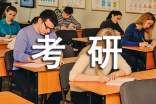考研英语阅读真题及答案
对不起,因为一点都不觉得对不起,所以对不起。,对不起的话语有哪些的呢?本文是小编整理对不起的话语的资料,仅供参考。

对不起的话语【经典篇】
对不起,这是我对朋友们的抱歉,我会如我说说所说的做,过了今天,我不会再玩QQ了,最多就可能还会玩下炫舞、以后你们要找我联系我,就打我电话或者发短信给我,可是,我不保证一定能接到电话或者回复短信,因为我要习惯性的不玩手机了、我想与世隔绝了、
对不起,这是给那个人的话,我打扰了你们那么多,害得你这么痛苦,这么累,真是抱歉。我知道我是放不下你的,我知道我做不到如我对别人所说的那样气愤的对你怎么样,不过,我可中国站长源码基地以保证的是,我不会在打扰你了,就如你所说的、至于你所说的自重,请容许我笑笑,不过,我会为了这次付出全部,甚至于一生...你或许不会相信,不过,我很偏执,偏执到了一定的境界,我也不希望会因此而困扰你、我想过了,不管怎么样,不管如何,我等,不要任何代价的等...
对不起,这是我给谢某某的,我想谢谢你,还有就是很对不起,你不用再等我了,我承受不起,也不想谈,只想一个人安静的过完自己的一生了,你会找到比我好的的,我相信、
对不起,这是给舍友们的,或许,你们不会在看到我的笑容了,不会在听到我的废话了什么了,因为我想我会变了,变得像行尸走肉一样,当个没心没肺的人,不过,我还是很在乎你们……
对不起,这是给猴纸的,我老是让你担心、你愿意当丫丫永远的猴纸么,因为我已经失去过一次了,我不想在失去你这只猴纸了、
其实,最对不起的是爸爸妈妈,对不起对不起对不起,如果有机会我会说出事情,不过,我不想你们知道,所以我可能一辈子都不会说出来、
对不起各位了,我现在只能逞强了,只能这么做了,希望你们可以谅解我、
另外,不管我以后会变成什么样子,不过我还是很在乎你们,不希望你们一个个都离我远去,抛下。
有时稀里糊涂好!有这样一句话:如果对不起有用的话,要警-察干什么? 付出了不一定有回报。但是不付出一定不会有回报! 既然付出了就不要后悔,因为没有用! 在付出的时候就应该想到会有这样的结局! 不要太天真了!
1 你好像生气了,我心里也不好受!如果是我酿成了此错,希望你能原谅!如果不能原谅,我自己也就无法原谅我自己了。
2 有你开心省心,对你真心痴心,为你担心痛心,也曾伤心碎心,不敢变心花心,不要多心疑心,最怕你是无心!
3 原谅我吧!我知道我错了,你若不能原谅我的话,那就不断的打电话骂我吧!我愿意被你骂到老!
4 爱我的人是你,伤你的人是我,愿用心抚平你的伤口,愿再度牵手......
5 我知道你生气了,而且你每次生气我都好害怕,理解我,好吗?原谅我,好吗?
6 小女人一个,但我很喜欢。以后再也不惹你生气了,想你,念你,恨不得啃啃你!
7 我已彻底想通了,也许一直以来我给你压力太大了,我知道你也很苦,很累。有些事,你有你的难处,你的苦衷。
8 愧疚的我不知道该怎样开口,但还是要说声对不起。
9 若无宽恕,生命将被无休止的仇恨和报复所控制。我真的无意伤害你,真的很想与你和好如初,请原谅我吧。
10 虽然我们时常吵架,还有对你所说的话,都是一气之下所说的气话,但在我心里还是很爱你
11 我知道。你一定是生气了。因为我看到:你的头发炸起来了。
12 我的手机会一直为你开着,如果你肯原谅我,随时可以联系我。
13 我错了!娘子温柔贤淑,持家有道,知书达理,是我不懂得欣赏,我对不起你,请你原谅我!
14 如果我的问候打挠了你我很无奈;如果你我相处是种负担我很痛心;如果心的距离已经远离我很遗憾;如果一切已经过去请你明示。
15 对不起,是我伤了你的心,请原谅我,我会一辈子疼你爱你作为补偿!
16 我不好,我检讨;我不对,我有罪;是我错,我该过。亲爱的,请你原谅我 .
17 虽然我常常惹你生气,但这并不是我的本意。我是多么的爱你,爱到连生命都可以舍弃。
18 什么样的话语都代替不了我愧疚的心情,我该怎样才能得到你原谅呢?
19 也许是缘分,我们都不愿伤害最不愿伤害的人,但还是发生了,相信我,因为我爱你,让我们彼此好好珍惜!
20 你的无心伤害,伤的是你,痛的是我。
21 无心让我伤害了你。我的心里也不好受!希望你能理解,可以给我一个改过的机会!重新开始接受我!
22 想起我们曾经有过的甜蜜,所有的气都烟消云散了。这就是真正的亲密无间,任何东西都无法割断我们彼此的爱。
23 都是我乱说惹的祸,对不起,我再也不乱说了,请你原谅我吧!
24 在这我真诚地请你原谅,别生气了好吗?
25 不要因为这件事情就把我全盘否定了啊,至少将我留家察看60年吧。
26 不敢面对你的目光,我知道错了,你大人有大量,原谅我好吗?深爱你的人正在忏悔……
27 你不要告诉我,你真的很生气。其实我知道,因为你很在乎我!而我也只能告诉你:很抱歉!
28 吓着你了吗?只是一个小玩笑,别介意哦!
29 我是一个笨蛋,但是请相信我,我并不是有意的'。能原谅我吗?亲爱的!
30 一颗傻傻的心,在痴痴的等着你的原谅!
31 我已经不再生你的气了,象我这样胸襟开阔、德高望重的人肯定会原谅你还在生我的气的!
32 所有的理由和解释都是苍白无力的,我选择在沉默中等待你的原谅。
33 也许是我不懂的事太多,也许是我的错,也许一切已经慢慢的错过,可我依然期待你的谅解和呵护!
34 若是因为我爱你而使你忧心或伤心,那么什么话语都代替不了我愧疚的心情,对不起,我该怎样的对待你呢?
35 男人如果得不到女人的谅解。就算膝下有黄金又能怎样。我跪下来表示百分之百的赔罪!
36 我知道你很生气。而且你每次生气我都好害怕。理解我,好么?原谅我,好么?
37 我是农民,您别跟我一般见识!
38 相爱使我们变得心胸狭隘,亲爱的,一切都是因为爱你太深。
39 很想和你去吹吹风,吹掉我给你的不愉快,只留下我给你的开心。
40 原以为彼此相爱平淡,谁知转眼风云突变﹔方知昨日难求,放出爱的信鸽---我很想念你!
41 对不起,这两天惹你生气了!不是有意的,原谅我吧!别往心里去!
42 对不起,昨天不是有意气你的,你还好吧?在家干什么呢,没有生我气吧?
43 我心中的女神:对不起!我这样做是因为我喜欢你,爱你!很想和你在一起!请再给我一次机会好吗?
44 我该打,我该骂,全怪我不听你的话,宝贝儿不要再生气了好吗?
45 如果一句“对不起”能化解所有怨恨,那我说,但,不是由衷的;如果一句“我爱你”能表达一切情感,那我说,但,不是假意的。
46 你好像生气了,我心里也不好受!如果是我酿成了此错,希望你能原谅!如果不能原谅,我自己也就无法原谅我自己了。
47 难道你不能容忍一个爱你的人犯的一次错误吗?如果你可原谅我,我将用我的实际行动来弥补我的过失!
48 终于体会到了五内俱焚的痛楚,只盼落崖的感觉在嘭然落地声中结束!
49 很想多陪陪你,无奈身不由己。请谅解,我爱你!
50 想起我们曾经有过的甜蜜,所有的气都烟消云散了。这就是真正的亲密无间——任何东西都无法割断我们彼此的爱。
对不起的话语【精简篇】
一、 我以为回忆就会这样慢慢搁浅。化作泡沫,消失在海的边陲。可是记忆的种子却时而出没、时而埋葬。再也无法追逆到从前的时光。今后的我们,都要勇敢。
二、 我已彻底想通了,也许一直以来我给你压力太大了,我知道你也很苦,很累。有些事,你有你的难处,你的苦衷。
三、 你在,你是一切;你不在,一切是你。
四、 很想和你去吹吹风,吹掉我给你的`不愉快,只留下我给你的开心。
五、 愧疚的我不知道该怎样开口,但还是要说声对不起。
六、 你太惨了,我内疚的想自杀!我会经常给你发短信息,直到我自杀为止。
七、 想起我们曾经有过的甜蜜,所有的气都烟消云散了。这就是真正的亲密无间——任何东西都无法割断我们彼此的爱。
八、 请接受我真诚的道歉!对不起!
九、 你好像生气了,我心里也不好受!如果是我酿成了此错,希望你能原谅!如果不能原谅,我自己也就无法原谅我自己了。
十、 所有的理由和解释都是苍白无力的,我选择在沉默中等待你的原谅。
十一、 我一直很用心的爱你,我不想欠你有太多,如果有一天我真的走,你一定要原谅我。
十二、 当每个人都说着自己有多寂寞的时候,我会认为他们是快乐的。
十三、 原谅我吧!我知道我错了,你若不能原谅我的话,那就不断的打电话骂我吧!我愿意被你骂到老!
十四、 我是人间惆怅客,知君何事泪纵横。
十五、 也许是我不懂的事太多,也许是我的错,也许一切已经慢慢的错过,可我依然期待你的谅解和呵护!
十六、 我们坚持不和对方说话,不表示我没有想你。试着疏远你,因为我知道我不能拥有你。
十七、 那些画家到底藏了多少秘密在油画里可以让漫长的时光中有无数次忧伤而安静的凝望。
对不起的话语【精选篇】
1、若无宽恕,生命将被无休止的仇恨和报复所控制。我真的无意伤害你,真的很想与你和好如初,请原谅我吧。
2、虽然我常常惹你生气,但这并不是我的本意。我是多么的爱你,爱到连生命都可以舍弃。
3、对不起,昨天不是有意气你的,你还好吧?在家干什么呢,没有生我气吧?
4、什么样的话语都代替不了我愧疚的心情,我该怎样才能得到你原谅呢?
5、我的手机会一直为你开着,如果你肯原谅我,随时可以联系我。
6、对不起宝贝,人在江湖,身不由己。
7、对不起,是我伤了你的心,我悔恨万分,害怕面对你凄然的目光。
8、虽然我们时常吵架,还有对你所说的话,都是一气之下所说的气话,但在我心里还是很爱你。
9、假如昨天有什么得罪了你,迁怒了你,那我今天来道歉,使明天你我同在一把雨伞下。
10、对不起,这两天惹你生气了!不是有意的,原谅我吧!别往心里去!
11、请接受我真诚的道歉!对不起!
12、也许是缘分,我们都不愿伤害最不愿伤害的人,但还是发生了,相信我,因为我爱你,让我们彼此好好珍惜!
13、所有的理由和解释都是苍白无力的,我选择在沉默中等待你的原谅。
14、你的无心伤害,伤的是你,痛的是我。
15、难道你不能容忍一个爱你的人犯的一次错误吗?如果你可原谅我,我将用我的实际行动来弥补我的过失!
16、我知道。你一定是生气了。因为我看到:你的头发炸起来了。
17、很想和你去吹吹风,吹掉我给你的不愉快,只留下我给你的开心。
18、原谅我吧!我知道我错了,你若不能原谅我的话,那就不断的打电话骂我吧!我愿意被你骂到老!
19、这次真的很抱歉,希望你能原谅。
20、我已经不再生你的气了,象我这样胸襟开阔、德高望重的人肯定会原谅你还在生我的'气的!
21、如果我的问候打挠了你我很无奈;如果你我相处是种负担我很痛心;如果心的距离已经远离我很遗憾;如果一切已经过去请你明示。
22、一颗傻傻的心,在痴痴的等着你的原谅!
23、希望你能接我的电话,有什么事,可以说,好吗?亲爱的。我等你的电话。
24、亲爱的,我错怪你了,原谅我好吗?
25、如果一句“对不起”能化解所有怨恨,那我说,但,不是由衷的;如果一句“我爱你”能表达一切情感,那我说,但,不是假意的。
26、终于体会到了五内俱焚的痛楚,只盼落崖的感觉在嘭然落地声中结束!
27、愧疚的我不知道该怎样开口,但还是要说声对不起。
28、吓着你了吗?只是一个小玩笑,别介意哦!
29、我不好,我检讨;我不对,我有罪;是我错,我该过。亲爱的,请你原谅我!
30、我错了!娘子温柔贤淑,持家有道,知书达理,是我不懂得欣赏,我对不起你,请你原谅我!
【考研英语阅读真题及答案】相关文章:
考研英语阅读真题翻译答案07-28
考研英语阅读真题答案解析09-11
考研英语阅读理解真题及答案06-07
考研英语阅读理解真题答案10-20
考研英语阅读理解真题答案解析07-11
考研英语阅读真题09-19
考研英语阅读理解真题05-30
考研英语阅读真题文章09-11
2016英语阅读真题考研07-17